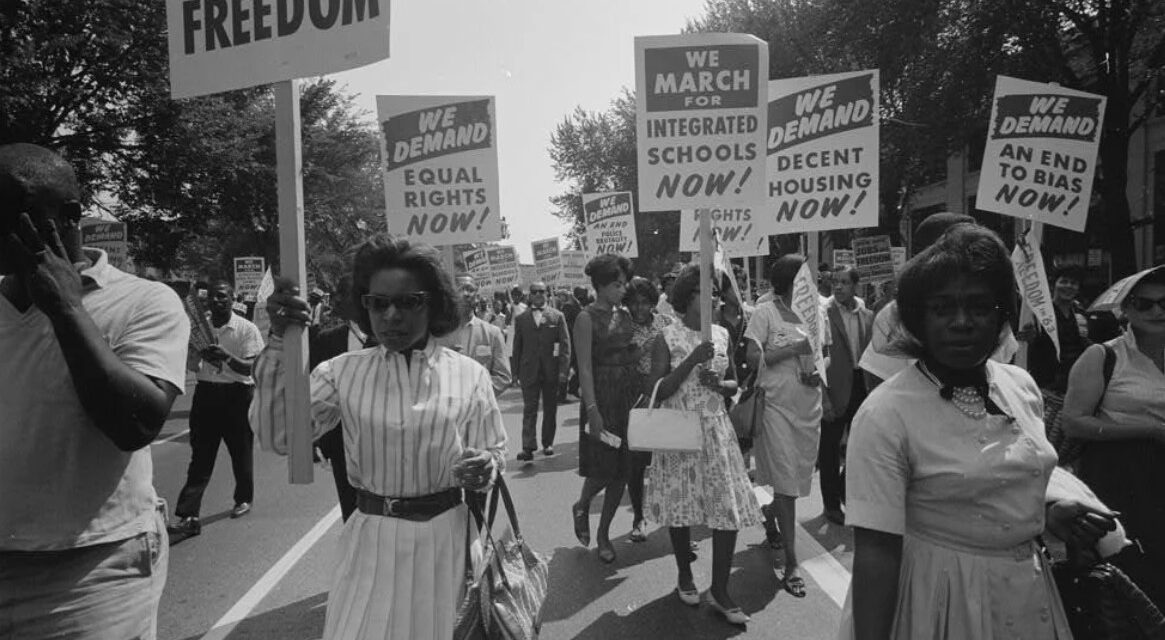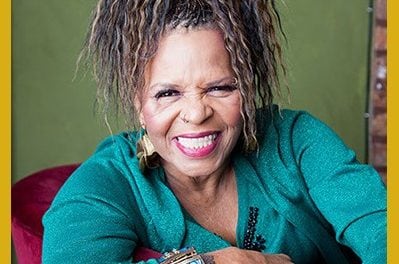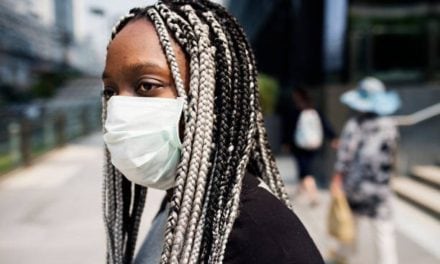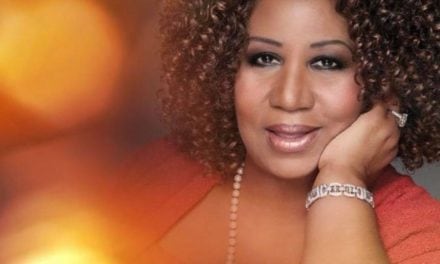By Ebenezer Nkunda and Madison Pina
Sixty years and generations later, women have taken center stage in the Civil Rights Movement, standing prominently at the microphone on Saturday to commemorate the March on Washington for Jobs and Freedom. But they were largely invisible in the same place at the Lincoln Memorial for the original march on August 28, 1963.
On that day, female leaders walked down Independence Avenue alongside the wives of the male leaders — not to separate themselves from the men walking down Pennsylvania Avenue, but showcase themselves as architects and organizers of the movement.
The March on Washington would not have happened if the women behind the scenes did not put in all the work they did. Ann Arnold Hedgeman was one of the lead organizers of the 1963 march along with women like Dorothy L. Heights, then president of the National Council of Negro Woman.
Hedgeman was responsible for recruiting 40,000 members to come to Washington as coordinator of special events for the Commission of Religion and Race of the National Council of Churches. After learning that no woman was present on the program as a keynote speaker, Hedgeman, the only woman in the planning committee, wrote a letter to the all-male “Big Six” saying that a woman should address the crowd. Hedgeman, Height nor other female leaders were given the opportunity to speak.
In addition to being a chief organizer of the March on Washington and a vital member of the Civil Rights Movement, Height was considered a member of the “Big Six.” Yet, the press ignored her in references to the “Big Six.” One member, James Farmer, mentions Height in his 1985 autobiography while identifying the origin of the name “Big Six.”
“Dr. Height, who didn’t get the chance to speak but will be named today as an intricate voice, was silenced, but her hand was all in it,” said the Rev. Shavon Arline-Bradley, who spoke at this year’s march as the current president of the NCNW, a co-sponsor of the anniversary.
After numerous ignored efforts and with the support of other female leaders, Hedgeman read a letter airing their grievances on the omission of women at the final meeting before the march. Hedgeman’s and Height’s efforts resulted in Myrlie Evers, widow of Medgar Evers, being selected to speak in 1963; however, she was ultimately unable to participate at the last minute.
Daisy Bates, who led the Little Rock Nine, gave a short speech of 142 words in her place, with a tribute to the women fighting for freedom and honoring those who rallied among the 250,000 attendees. Josephine Baker is often credited as speaking at the march, and she did, but she spoke before the formal events began.
For the most part, women were present on stage as entertainment. Camilla Williams sang the national anthem after Marian Anderson arrived too late. Anderson later got her chance to sing. So did Mahalia Jackson, who sang before the Rev. Martin Luther King Jr. took the stage.
Women’s Resilience: A Continuum of Commitment
Today, women and girls are honoring the legacy of those who came before them and carrying the torch of progress forward in a wide range of roles.
“Black women are here to stay,” Bradley said. “Black women have done it again. We’re united again, and the generations are united again. As NCNW sections on all collegiate campuses, we have huge opportunities to talk about our ancestors.”
“We’re here to fight for these issues on poverty, justice, education, and health care,” she added.
Throughout the afternoon, more and more speakers came out, shining a light on how Black women have been at the forefront since the beginning.
“We continue to march as the first group to establish an African-American lobby group in 1938, the National Nonpartisan Council on Public Affairs,” said Danette Anthony Reed, president of Alpha Kappa Alpha Sorority Inc., told the crowd.
“We continue to march as the first sorority to enter lifetime membership in NAACP in 1939. We continue to march as the org in 1948 to establish the American Council on Human Rights for the Greek letter organizations to lobby.”
Brigitte Jean–Louis, director of mission advancement for the Young Women’s Christian Association, continues in the same dedication to women’s advancement as Hedgeman, who held high YWCA positions in Ohio and New York. Coming in from Princeton, New Jersey, Jean- Louis said that she had to be in attendance.
“Being here in a community with everyone fighting for democracy is huge to me,” said Jean-Louis while surrounded by fellow YWCA members. “As the daughter of Haitian immigrants, the first nation to fight back and win against their oppressors, this is in my blood.”
With the Dobbs v. Jackson decision leading to the overturning of Roe v. Wade and Parenthood v. Casey, which protected abortion rights, women who were born with the right to choose have found that right taken from them. They are now fighting to get them back with the generations that got them in the first place. The ongoing struggle for their rights reminds women that the fight is not linear. Still, it is through these hardships that the impact of unity is as prevalent as ever, as women came together to ensure their hard-earned triumphs would not be diminished.
Voices of the Youth: A New Chapter in Activism
Young people have always been part of the Civil Rights Movement, and they are continuing this legacy.
“We are still fighting for the same things 60 years later,” said Carys Carr, a member of the Howard University section of the National Council of Negro Women. “We have a lot further to go, but we still came a long way. Being here with people who were here 6o years ago, it’s a good feeling, not in the best way because we are still fighting for the same stuff.”
Jan Howard, who came with the National Council of Jewish Women, recounts sitting on the steps and listening to King’s speech.
“I was here in 1963, and I was sitting on those steps. They asked me to join them, and I said, ‘Sure, why not?’ I think it’s important to continue to fight for other freedoms.”
When asked if she has seen change, Howard says “Some, but more can change.”
“It’s a very sad thing to be here 60 years later and not see progress,” she added. “We hope the young people take over, because we’ve done our part.”
Later in the afternoon, the only grandchild of the Rev. Martin Luther King Jr. took the stage. Yolanda Renee King, a 15-year-old published author and public speaker, looks out among a crowd similar to the one her grandfather gazed upon in 1963.
Surrounded by her mother, Arndrea Waters King, and father, Martin Luther King III, she reiterated her grandfather’s teachings on taking on the triple evil of racism, poverty and bigotry. She stated that her generation is experiencing things that earlier generations didn’t expect but now cannot escape. Therefore, she said, her generation will be “defined by action, not apathy.”
The youngest King leader ended the speech in a way that encapsulates the presence of her grandfather as the crowd repeated after her:
“Spread the word.”
“Have you heard?”
“All across the nation,”
“We are going to be a great generation.”
By joining arms across time and circumstance, the gathering served as a bridge between the conflicts won and those that continue. As the march came to a close, the setting sun shed a symbolic light on women’s tenacity and unity of purpose as they continued in their lives.
Ebenezer Nkunda and Madison Pina are reporters for HUNewsService.com.








